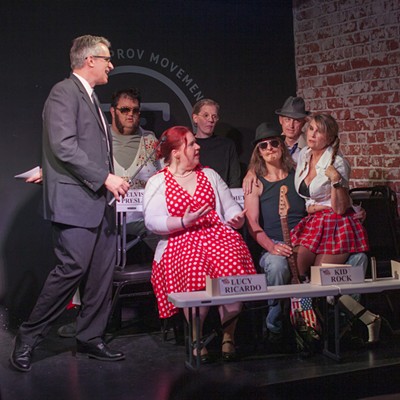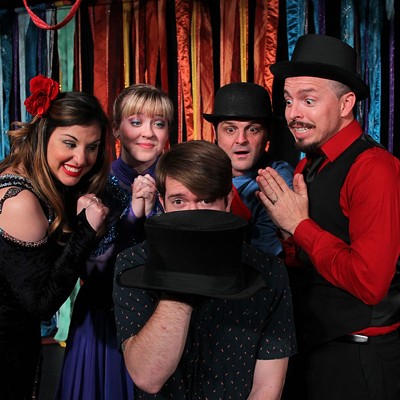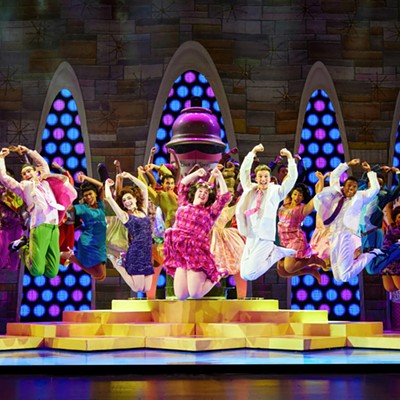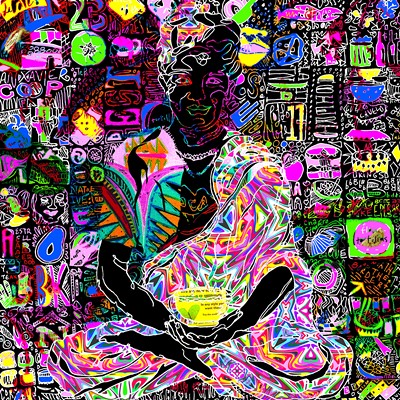There was a time when being an "intellectual snob" was not such a bad thing; a time before former Vice President Spiro Agnew attempted to discredit his detractors by calling them "effete intellectual snobs."
Not so effete were the witty literati that made up the famed Algonquin Round Table in New York City in the early to mid-20th century. Among the most recognized names of that crew are Robert Benchley, Robert Sherwood, Alexander Woollcott, Harpo Marx, and, of course, Dorothy Parker, author of poems, short stories, book and theater reviews —and a life worthy of exploration in a theatrical setting.
Live Theatre Workshop, for the first show of their 2014-2015 season, is presenting Dorothy Parker's Last Call, written and performed by Tucsonan Lesley Abrams. It's an ambitious undertaking, as script, as performance and as a production. As directed by LTW's artistic director, Sabian Trout, the piece works pretty well, and as a result we are both entertained and, perhaps to a lesser degree, informed.
That Parker (1893-1967) is an intriguing character is undeniable, perhaps mostly because she was an unapologetic smart-ass of the female gender in a time when such were quite hard to come by. Her quips, rhyming and otherwise, are still quoted with great comic effect. As Woollcott, a New Yorker contributor mused, she was "a combination of Little Nell and Lady Macbeth." Remarking at intermission on Katherine Hepburn's performance in The Lake, Parker offered, "We might as well go back and watch Katherine Hepburn run the gamut of emotions from A to B." And in an interview in The Paris Review she proclaimed, There's a hell of a distance between wise-cracking and wit. Wit has truth in it; wise-cracking is simply calisthenics with words."
Abrams has done a very good job of mining Parker's biography as well as her wit. She takes us chronologically through Parker's life: her birth as a Rothschild — but "not those Rothschild's" — and a "mongrel," the offspring of a Jewish father and Scottish-Protestant mother; her marriages, to Edwin Pond Parker II, whose name she gladly traded for "Rothschild," and to Alan Campbell, twice. We hear of her attempted suicides; her sojourns in France and Spain; her career with Campbell as a Hollywood screen writer, an effort at which she scoffed even though she contributed some lauded work (such as A Star is Born in 1937.) Abrams also takes us through Parker's more political and activist mature years, her blacklisting, and her sympathy for equal rights. (She left her entire estate to Dr. Martin Luther King, Jr., and after his death it went to the NAACP.)
Abrams gives herself a big job, because her goal is for us to come to know Dorothy Parker, certainly to appreciate her work and, possibly, to understand her on a deeper level. In many ways, she succeeds. But using Parker's words (and the words of others about Parker, which Abrams-as-Parker quotes) to tell her own story is tricky. We are challenged to trust—or not—the story as it flows from the horse's mouth. With the exercise of her skill, Abrams certainly crafts a well-wrought character, taking advantage of Parker's bite and pluck and witty words. But do we get a real understanding of who this smart, liquor-swilling, often lost and desperate woman was? Perhaps, through great extrapolation. This would be a challenge for any such treatment of Parker. But we certainly come to know her better than merely as a witty satirist.
Director Trout and Abrams seem to have worked well together. However, I think that Trout's imposition of copious blocking and light changes undercuts the strength of Abrams' ability to carry us to different places without set pieces, some of which were hardly used.
Still, this is an interesting and entertaining piece, showcasing both a fascinating writer and a talented actress.











